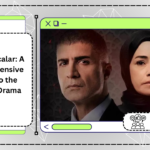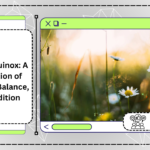Independence Day: Wednesday, 20 March
In Tunisia, one of the most important public holidays is Independence Day, which is celebrated on Wednesday, 20 March. This day holds great significance in the history of Tunisia as it marks the country’s independence from French colonial rule. It is a day of national pride and patriotism, commemorating the hard-fought struggle for freedom and self-determination.
The Road to Independence
The journey towards independence was not an easy one for Tunisia. The country had been under French control since the late 19th century, and the desire for freedom grew stronger over time. The Tunisian people, led by prominent figures such as Habib Bourguiba, fought for their rights and independence through peaceful protests, political movements, and negotiations.
After years of struggle and determination, Tunisia finally gained its independence on 20 March 1956. This marked the end of French colonial rule and the beginning of a new era for the Tunisian people.
Celebrations and Traditions
Independence Day is a joyous occasion in Tunisia, and the day is filled with various celebrations and traditions. The streets are adorned with the Tunisian flag, and people come together to honor their country’s history and achievements.
One of the highlights of the day is the official ceremony held in the capital city of Tunis. The President of Tunisia delivers a speech, reflecting on the significance of the day and paying tribute to the heroes who fought for independence. The ceremony is attended by government officials, military personnel, and members of the public.
Another important tradition on Independence Day is the laying of wreaths at the mausoleum of Habib Bourguiba, the first President of Tunisia. This serves as a reminder of his pivotal role in the fight for independence and his contributions to the development of the country.
Throughout the day, there are also parades, cultural performances, and fireworks displays. These festivities bring people from all walks of life together, fostering a sense of unity and national pride.
Reflection and Gratitude
Independence Day is not only a time for celebration but also a moment for reflection and gratitude. Tunisians take this opportunity to appreciate the sacrifices made by their ancestors and to honor the values of freedom, democracy, and equality.
It is a day to remember the struggles faced by the Tunisian people and to recognize the progress that has been made since gaining independence. Tunisians reflect on the achievements of their nation and look towards the future with hope and determination.
Conclusion
Independence Day in Tunisia is a significant and cherished public holiday that commemorates the country’s liberation from French colonial rule. It is a day of national pride, celebration, and reflection. Tunisians come together to honor their history, pay tribute to their heroes, and express gratitude for the freedom they enjoy today. It is a time to celebrate the achievements of the past and to look towards a brighter future for Tunisia.












